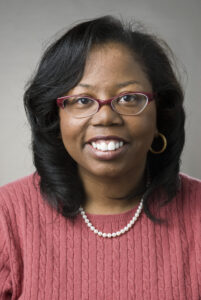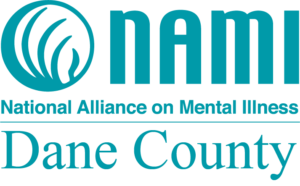The National Alliance on Mental Illness (NAMI)-Dane County has named UW–Madison professor Diane C. Gooding, Ph.D., as its new chair.

A professor of psychology and psychiatry in the UW–Madison College of Letters & Science, Gooding will replace outgoing chair Amanda Pirt Meyer. Gooding previously served on the NAMI-Dane County Board in the late 1990s through early 2000s, as well as the NAMI-Wisconsin board. Gooding was honored with the UW–Madison Outstanding Women of Color Award in 2009-10 in recognition of her service to the UW community.
“I am excited and honored to assume this special leadership role for the NAMI affiliate where it all began, NAMI-Dane County,” Gooding said. “I humbly acknowledge the courageous and brilliant women who started the NAMI organization — Harriet Shetler, Bev Young and one of my personal sheroes, Nancy C. Abraham. I aim to follow the august footsteps of Dr. Bob Beilman, Gail Louise Auerbach and Dr. Corinda Rainey-Moore, all former NAMI-Dane presidents and all dear
friends of mine. … I feel ready for this!”
Gooding is an expert on identification of risk factors for psychotic disorders, especially schizophrenia, as well as media and mental illness. She has published more than 100 papers in scholarly journals and was featured on NPR’s “Eyes on Schizophrenia” in June. She has received teaching and research awards for her efforts to bring both a scientific and humanistic perspective to the study of severe mental illness.
 NAMI-Dane County is the founding chapter of the National Alliance on Mental Illness, the nation’s largest grassroots mental health organization dedicated to improving the lives of people affected by mental illness. It provides education, support and advocacy for people affected by mental illness in Dane County.
NAMI-Dane County is the founding chapter of the National Alliance on Mental Illness, the nation’s largest grassroots mental health organization dedicated to improving the lives of people affected by mental illness. It provides education, support and advocacy for people affected by mental illness in Dane County.
Gooding said one of her goals in her new role is to make NAMI-Dane County more accountable to its members, engage in more outreach to underrepresented communities, and continue advocacy and de-stigmatization work.
“I think now, more than ever, we need to harness our strengths and make sure that in these changing and challenging times, people with mental illness are being listened to, getting their needs met and being treated with care, respect and dignity,” she said. “We need to support family members and loved ones. Mental illness affects all of us, directly or indirectly.”